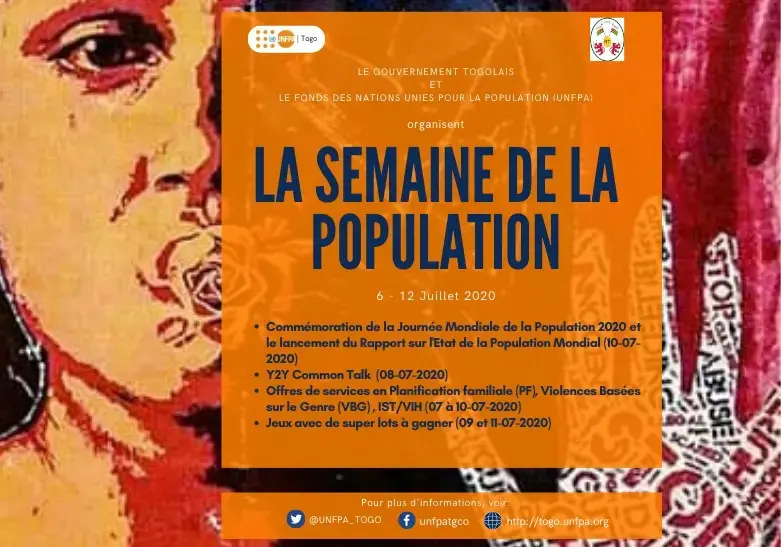The United Nations Population Fund, in partnership with the governments of Burkina Faso, Côte d'Ivoire, Gambia, and Togo, is launching a final call for transformative action to eliminate obstetric fistula in West and Central Africa. A special event was organized for this purpose on September 23th, 2022 in New York on the sidelines of the 77th United Nations General Assembly, to make a final appeal to decision makers and development partners for a renewed commitment to this cause. Co-chaired by the First Lady of Gambia, H. E. Mrs. Fatoumata Bah-Barrow and the UN Under-Secretary General and Deputy Executive Director of UNFPA, Dr. Diene KEITA, the meeting was attended by the First Ladies of Namibia and Guinea Bissau as well as members of the governments of Burkina Faso, Côte d'Ivoire, Ghana, Guinea Bissau, Liberia, Mali, Nigeria and Togo. Also present at the meeting, technical and financial partners, donors, and civil society representatives interested in reproductive health, gender and human rights issues. It is worth mentioning the presence of the Regional Director for West and Central Africa of UNFPA, Mrs. Argentina MATAVEL, UNFPA Resident Representatives in Guinea Bissau, Gambia and Togo as well as senior officials from UNFPA headquarters.
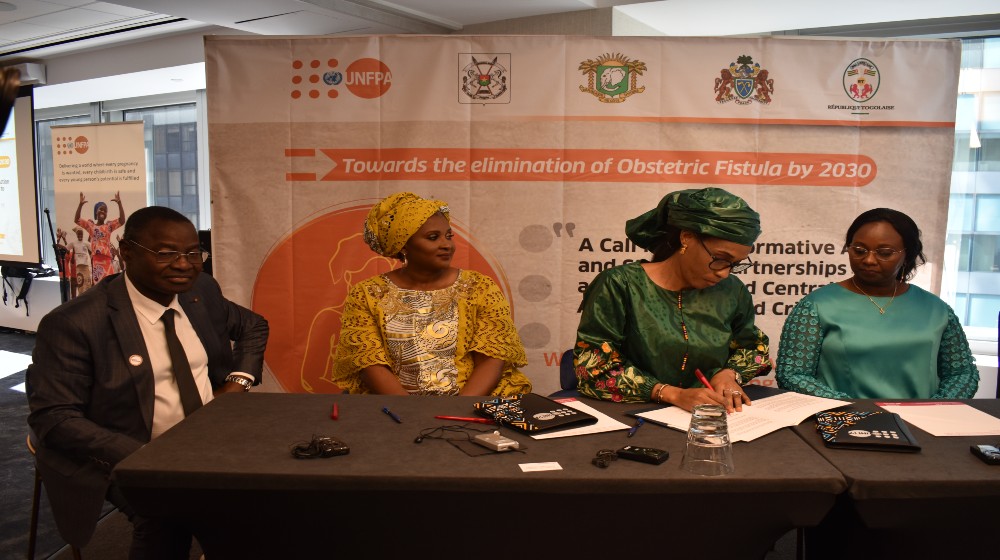
Achieving zero obstetric fistula by 2030 will require concerted efforts by governments, development partners, regional bodies, women's and youth organizations, the private sector, community leaders, and ordinary citizens to raise awareness and invest in ending obstetric fistula. The objective of this side event at the 77th UNGA is to build and strengthen partnerships among stakeholders to increase commitment and mobilize resources to address obstetric fistula in West Africa. It follows the regional conference on obstetric fistula held in Abidjan, Côte d'Ivoire, September 13-15, 2022.
While obstetric fistula has been eliminated in developed countries, women and girls in developing countries are still fatally exposed to this morbidity. This is particularly true in the West and Central African region, where more than half of the world's 2 million fistula cases are currently occurring. Unfortunately, fistula repair efforts in these regions are still too timid and slow. In 2018, only 2,281 women received fistula treatment in the entire region. At this rate, if efforts to address this condition are not accelerated, it will take centuries to end obstetric fistula in West and Central Africa.
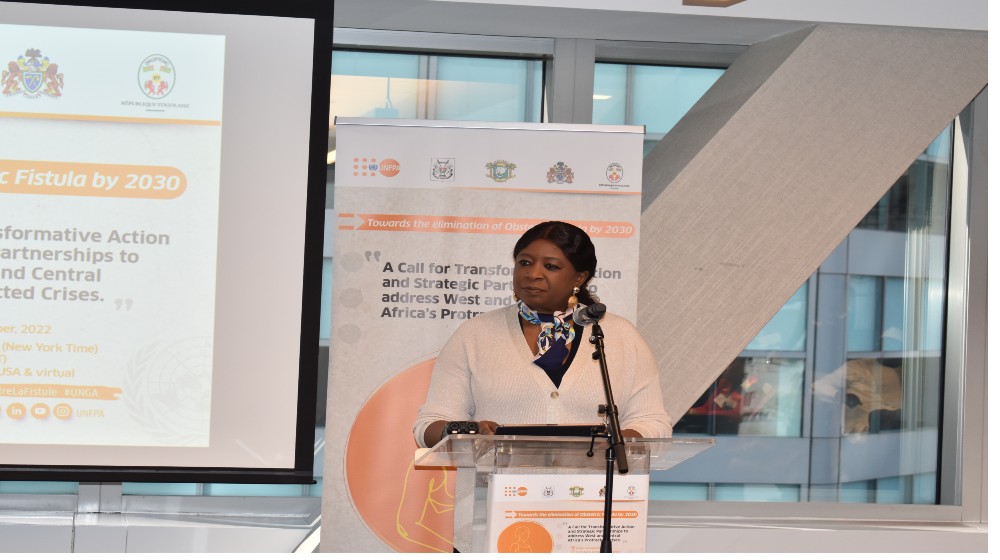
An investment case conducted by UNFPA for the West and Central Africa region in 2020 revealed that the cost of responding to fistula is only US$1,500 per survivor, and for every US$1 spent on addressing obstetric fistula in the region, at least US$3.1 will be recouped in the form of increased productivity in the medium to long term. "The world risks not achieving the Sustainable Development Goals and the promise of the International Conference on Population and Development if there are still women or girls suffering from fistula," said Dr. Diene KEITA, urging all to leverage collective capacities and resources to accelerate action to safeguard the human rights of women and girls, protect their dignity, hope, dreams, and ability to reach their full potential.
The magnitude of obstetric fistula is evidenced by numbers (more than half of the cases are in West and Central Africa, exposing approximately one million girls and women). It is also attested by the awesome medical, psychological, social and economic consequences. In Togo, for example, the annual incidence is between 150 and 300 cases and the prevalence is 1%, which corresponds to about twenty thousand cases. "The fight against obstetric fistula in Togo is part of the major component of maternal and child health, a pillar of the National Health Development Plan, a tributary of the National Development Plan. It is in phase with the struggle led by the First Ladies to whom we pay a vibrant tribute. Together, our countries will move further into action and go beyond commitments, as was the case during the important meeting held from 13 to 15 September 2022 in Abidjan, and chaired by the First Lady of Côte d'Ivoire, Mrs. Dominique Ouattara. Our meeting today, which is perfectly in line with our previous actions, will undoubtedly contribute to the elimination of obstetric fistula in our countries by 2030," said Prof. Moustapha MIJIYAWA, Minister of Health, Public Hygiene and Universal Access to Health Care, during his address at the event.
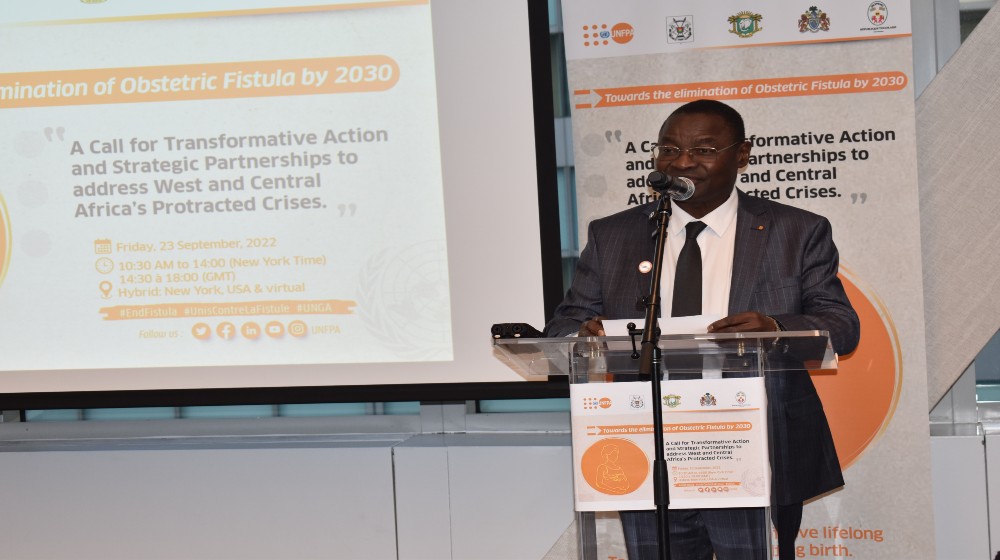
For her part, Mrs. Elisa De Raes, First Secretary of the Permanent Mission of Belgium to the United Nations, reaffirmed her country's leadership in the donor coalition and urged the group of donors and partners to join efforts to eliminate obstetric fistula in West and Central Africa by 2030.
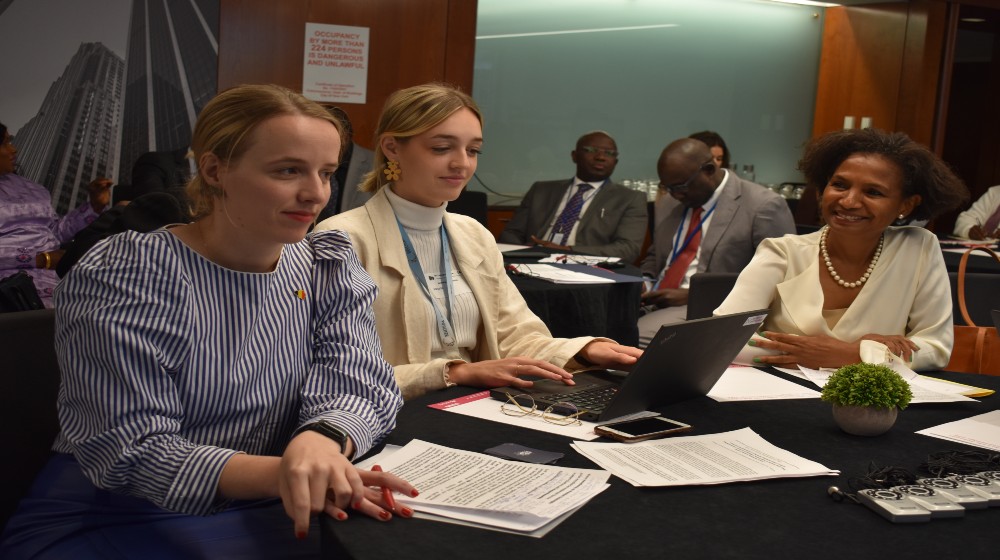
All things considered, UNFPA and the First Lady of The Gambia had the merit of seizing the opportunity of this 77th UN General Assembly to once again express their indignation at this morbidity that unjustly undermines the dignity of millions of women and to call once again, for vigorous action to eradicate it. It is hoped that the commitments made in Manhattan be translated into action on the ground, throughout the districts and hamlets of West and Central Africa.
@SimoniDakiche




